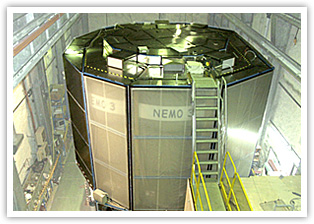An extreme asymmetry in the quantities of matter and antimatter is one of the great unsolved questions about our universe. To generate the matter-antimatter asymmetry, three conditions of 1) thermal non-equilibrium, 2) fermion-number non-conserving process, and 3) time-reversal asymmetry are required. Neutrino-less double beta decays (0vbb) and time-reversal symmetry (T-) violation in neutron- nucleus scatterings provide useful probes for the lepton number non-conservation and T-violation, respectively. We participate in international collaborations of SuperNEMO and CANDLES which are the next-generation 0vbb experiments. Also we are promoting the international collaboration NOPTREX to search for T-violation with a sensitivity better than current upper limits. In those experiments, the signals are at least five orders of magnitude weaker those of the processes allowed in the standard model of particles and interactions. Therefore it is important to develop smart experimental methods as well as state-of-the-art detectors.
Our group is hunting the evidences of the physics beyond the standard model such as extra dimensions and sterile neutrinos. Intense pulsed beams of neutrons and neutrinos provided at the Material and Life science experimental Facility (MLF) of J-PARC are best suited for the experimental searches with the world highest sensitivities.
In addition to the particle physics researches, we are investigating detailed properties of nuclei and nuclear forces by means of high-intensity muon beams provided at RCNP and J-PARC/MLF. One of our main programs is the study of the three-nucleon force via the negative muon-capture reaction on He-3.

NEMO3 detector

SuperNEMO module
NEMO3 detector (Left) and SuperNEMO module (Right).
SuperNEMO project is an international collaboration of France, UK, Spain, Russia, Czech, Ukraine, USA and Japan for the next-generation neutrino-less double beta decay experiment with a sensitivity of <mν> ≤ 50meV

Principle of proving “extra dimensions”
via small-angle neutron scattering.
The experiment is ongoing at J-PARC MLF.








